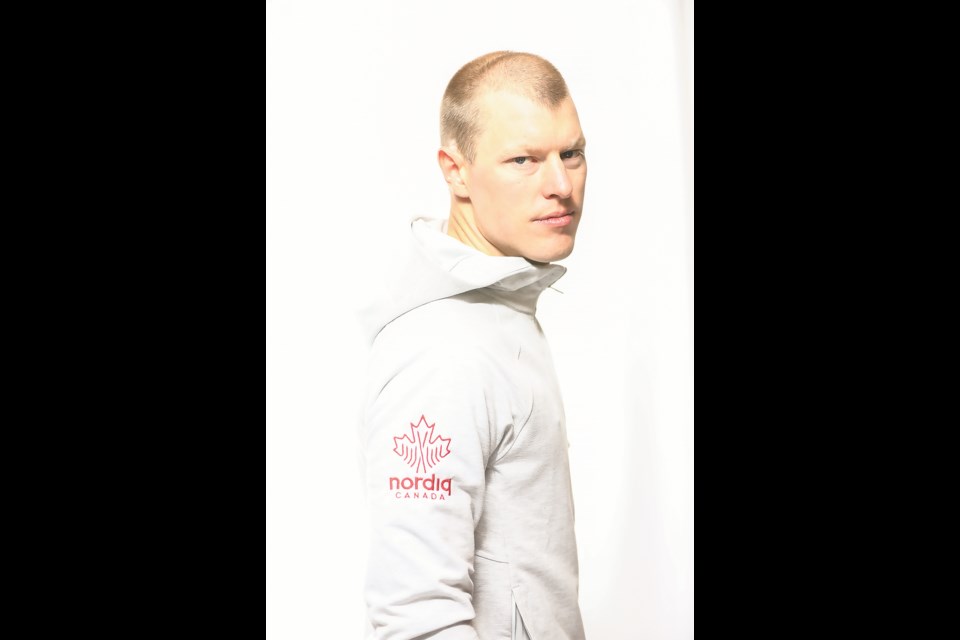Mark Arendz, Para nordic skiing, eight-time Paraympics medallist
The heavy hitter of PyeongChang is back for more.
Mark Arendz, the record holder for most medals won at a single Winter Paralympics with six (gold, two silver, three bronze), has circled Beijing on the calendar for a long time.
A competitive guy by nature, being one of world’s best athletes has defined the prince of Prince Edward Island for a decade.
“My goals are every time I come to the start line I’m the best prepared I can be,” said Arendz. “When I cross the finish line, knowing I’ve done everything I can and there’s nothing left out there. … I deal my hand on the table and see if anyone can beat that.”
Not much has slowed down the soon-to-be 32-year-old champion. At the 2019 world championships, he won another six medals (three silver, three bronze) in cross-country and biathlon. During the pandemic, Arendz took last season off competition, but he certainly wasn’t sitting on the couch with a bag of potato chips.
A big driver behind Arendz’s consistent grind was being 0.7 seconds away from gold in Sochi 2014.
As talented on skis as he is with a rifle, the Para nordic skier is a go-getter in training. In fact, Arendz might be one of the few athletes who loves the process more than show time.
He’s the type of athlete, who, even when dead tired, knows that last interval gets you 0.7 faster.
That killer instinct is a huge reason why the 15-year veteran has spent nearly half his life on the national team in Canmore and is days away from Games No. 4.
“Sport has been everything for me,” said Arendz. “When I first lost my arm at the age of seven it was kind of this therapy. Sport allowed me to show my ability still rather than my disability, so focusing on track and field, cross-country running and just a variety of different sports. It was a fun challenge of learning how to adapt to different sports, but also just excel in some of them as well.”
The farm accident is imprinted in Arendz’s mind. Nearly a quarter century later, he vividly details what went wrong on that summer day in 1997.
Just an average seven-year-old kid from Hartsville, P.E.I., Arendz was helping dad on the farm. In the yard that day, a truck was unloading grain onto an auger, a large rotating screw-like machine that conveys the product into a bin or silo.
Some grain wasn’t quite flowing properly near the turning auger, Arendz observed, so he went to give it a push. When he did that, he lost his balance and shot both hands out to save his fall.
“My right hand landed on the piping of the auger and my left landed on the shields, but they’re meant to stop an adult hand or foot and that’s when it just flipped and went all the way up to my shoulder almost instantly,” said Arendz.
“They tried to pull me out … I was just too entangled,” Arendz continued. “They had to actually reverse the auger until I got untangled. Dad wasn’t going to wait for the ambulance so he drove me right to the Charlottetown hospital. I remember everything. I even remember reading the red emergency above the doorway before finally passing out later that night.”
He was airlifted to a Halifax hospital where doctors did all they could, but were forced to amputate above his left elbow. Losing three and a half to four litres of blood, the doctors told Arendz the only thing that saved his life was that he didn’t go into shock, which would have started a cycle that would have killed him.
Within a few months, the tall, active kid was back at it.
“I was kind of like this is what kids do so I’m going to do it regardless and then that never really held me back,” said Arendz.
“There were challenges to figure it all out, but I was just going to be a kid and play.”
As a young athlete, Arendz found biathlon first and then cross-country – the backwards way.
Arendz and brother Menno saw biathlon at Salt Lake City 2002 and thought it was cool. A few years later, they found a local club and that that’s when Arendz fell in love with the sport and led to where he is today.
“For me the goal has not changed,” said Arendz.
“I went to PyeongChang focused on the performance and I think Beijing will be very much about the performance too.”



.png;w=120;h=80;mode=crop)